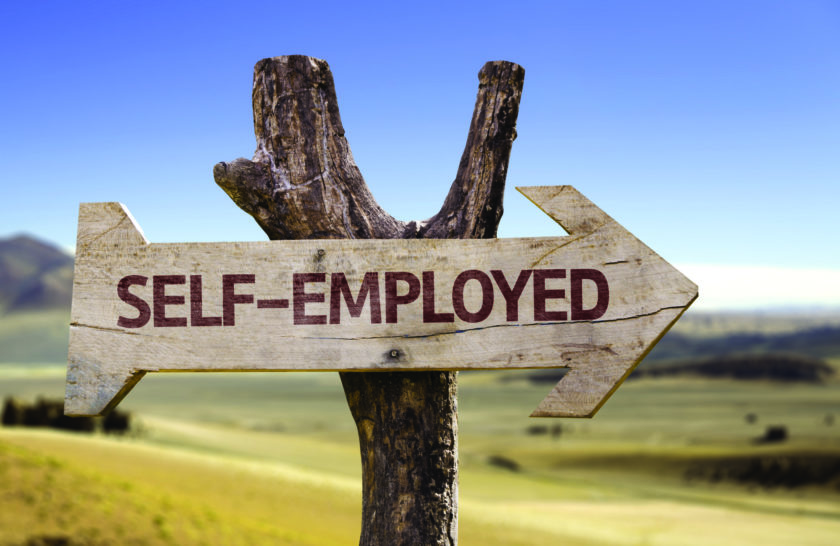If you’re undertaking planning reports for self-employed or partnership clients after 6 April 2023, you’ll need to pay special attention to their accounting year end date and make sure they understand how they’ll be affected by upcoming changes to reporting rules, explains Richard Cooper, business and development manager, The London Institute of Banking & Finance.
HM Revenue and Customs (HMRC) plan to change how sole traders and partners allocate trading income to tax years. Known as the basis period reform, the change will mean that any business profits will be calculated for the tax year rather than for the accounting year.
The move is intended to streamline the tax system and pave the way for Making Tax Digital (MTD) for income tax.
For some self-employed and partnerships the change could lead to an increased tax liability in 2023/24 and potentially for the four years after. So, it’s important they are aware of the change and how it may impact them.
Who does the basis period reform affect?
The reform only affects businesses that draw up their annual accounts to a date that does not fall between 31 March and 5 April. If their accounting year end is between these dates, they will not be affected.
The rule change covers:
- self-employed traders
- partners in trading partnerships and
- other unincorporated entities with trading income, such as trading trusts and estates.
The change won’t affect limited companies.
What is changing and when?
From 6 April 2024, all self-employed and partnership clients will be assessed on their profits for each tax year that runs from 6 April to 5 April.
This change will affect how they fill in their tax return if they use an accounting date that falls outside of the period between the 31 March and 5 April.
There will be a transition year from 6 April 2023 to 5 April 2024, to allow any overlap relief that they may be due to be used against their profits for that tax year.
The changes will mean the amount of tax they owe for the 2023/24 tax year may change. They will be assessed on the tax for profits for the 12-month accounting period they have previously been using as well as the remainder of the 2023/24 tax year – minus any overlap relief that may be due.
The profits that fall in the remainder of the 2023/24 tax year are spread over the next five tax years, though clients can spread these over a shorter period if they wish.
How profits for the 2023/24 tax year will be assessed
The way profits are assessed will not change if your clients have an accounting date between 31 March and 5 April.
Profits for businesses with accounting periods ending between 6 April 2023 and 30 March 2024 will be divided and assessed over the 5 tax years starting on 6 April 2023.
If they have any overlap relief available, that will be set-off against those profits first.
Any increased profits from the 2023/24 tax year will be treated in a special way to minimise the impact on benefits and allowances. For example, it is not taken into account for high income child benefit purposes.
Overlap relief
If your clients used an accounting date between 6 April and 30 March when they started their business, they may have paid tax twice on some of their profits and be entitled to overlap relief.
Usually, businesses can only use overlap relief to get this tax back when they stop trading or when they change their accounting date.
However, HMRC will allow any business that uses any accounting period and that has unused overlap relief to use it in the 6 April 2023 to 5 April 2024 transition year.
HMRC will publish guidance on how to check how much overlap relief may be due and this is something that clients will need to discuss with their accountants.
Example where overlap relief is used against profits
1. The accounting period is from 1 October to 30 September.
2. The assessable profit is £45,000 from 1 October 2022 to 30 September 2023.
3. The assessable profit is £30,000 from 1 October 2023 to 5 April 2024.
4. They have £8,000 of unused overlap relief that they can use to reduce their assessable profit for 1 October 2023 to 5 April 2024 to £22,000 (£30,000 minus £8,000).
5. The £22,000 profit is divided equally and assessed over the next 5 tax years at £4,400 a year (£22,000 divided by 5).
6. In the 2023 to 2024 tax year the total assessable profits will be £49,400 (£45,000 plus £4,400).
Changing the accounting period
Clients will not be required to change their accounting period and can continue using whatever dates suit their business.
However, they may want to consider changing their accounting date to 31 March or 5 April, as this will align with the end of the tax year and save them the trouble of apportioning profits on their tax return every year.
The restrictions on changing the accounting date that are currently in place will be lifted starting from the tax return for 2023/24.
Next Steps
These are significant changes that impact heavily on those effected. Asking the question about their accounting date can add real value to their situation by simplifying their future tax calculations.






























